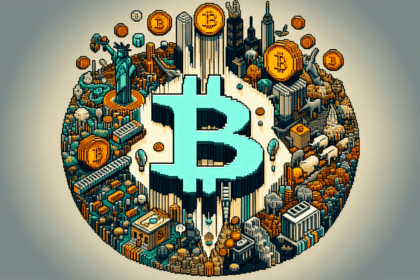The U.S. Securities and Exchange Commission is seeking to amend its lawsuit against Binance, indicating a possible shift in its regulatory approach. The proposed revision would no longer require the court to determine if certain tokens are securities, reflecting a significant departure from the SEC’s earlier stance.
The recent document suggests abandoning the claim that several third-party tokens qualify as securities. This move could reshape the regulatory landscape for the crypto industry.
Initially, the SEC’s June 2023 lawsuit categorized around 68 tokens as securities. This included major cryptocurrencies like Solana, Cardano, and Polygon, sparking widespread debate and uncertainty within the industry.
The situation intensified following a July 9 hearing where a misunderstanding occurred regarding Judge Amy Berman Jackson’s ruling on a dismissal motion. The judge clarified that third-party tokens were still under consideration in the case.
The July 30 court document stated the SEC’s intention to revise its claims. The exact implications of this adjustment are still unclear, prompting the defense to request reviewing the amended complaint before proceeding.
SEC’s Changing Stance
For years, the SEC viewed almost all cryptocurrencies, except Bitcoin, as securities requiring strict oversight. However, recent actions, like approving Ethereum ETFs, signal a shift toward treating some cryptocurrencies as commodities.
Despite these changes, the SEC’s approach in the Binance case has drawn criticism. Ripple’s CEO, Brad Garlinghouse, called the SEC’s actions "hypocritical" in a tweet, highlighting the regulatory inconsistencies that foster confusion within the industry.
<blockquote class="twitter-tweet">
<p lang="en" dir="ltr">More evidence of SEC hypocrisy. Chair Gensler testifies the rules are clear, yet his SEC can't figure them out and applies them haphazardly, festering more industry confusion. A political agenda and/or bad faith litigation tactics. Def not a “faithful allegiance to the law". <a href="https://t.co/iX8IdvaW92">https://t.co/iX8IdvaW92</a></p>
— Brad Garlinghouse (@bgarlinghouse) <a href="https://twitter.com/bgarlinghouse/status/1818291451136246236">July 30, 2024</a></blockquote>Ripple’s ongoing legal battle with the SEC, initiated in 2020, is closely watched as it may set important precedents for cryptocurrency regulation. Recently, Judge Analisa Torres ruled that XRP sales to retail investors did not constitute investment contracts, seen as a significant setback for the SEC.
Experts Weigh In
Legal experts believe the SEC’s latest move is more tactical than a shift in policy. Lawyer Jake Chervinsky argues the SEC’s decision appears to be a litigation strategy specific to the Binance case.
<blockquote class="twitter-tweet">
<p lang="en" dir="ltr">There is no reason to think SEC has decided SOL is a non-security. That they don't want to do discovery on a dozen tokens in the Binance case appears to be a litigation tactic, not a change in policy. Note the SEC still calls these tokens securities in the other exchange cases. </p>
— Jake Chervinsky (@jchervinsky) <a href="https://twitter.com/jchervinsky/status/1818295226311606448">July 30, 2024</a></blockquote>Former SEC senior adviser Justin Slaughter echoes that sentiment, suggesting the SEC is not abandoning its position but only adjusting its approach in this specific case.
<blockquote class="twitter-tweet">
<p lang="en" dir="ltr">A lot of people are overreading this filing. The SEC is not saying that it will not longer take the position that Solana and the other tokens are not securities, but merely that it won’t see to prove such tokens are securities in this, the Binance case. <a href="https://t.co/gJKSodERL7">https://t.co/gJKSodERL7</a></p>
— Justin Slaughter (@JBSDC) <a href="https://twitter.com/JBSDC/status/1818291109669286086">July 30, 2024</a></blockquote>John E. Deaton, a lawyer and Senate candidate, argues the SEC’s actions have harmed retail investors and advocates for the resignation of SEC Chair Gary Gensler.
<blockquote class="twitter-tweet">
<p lang="en" dir="ltr">This is further evidence that Gary Gensler should resign immediately. In the Ripple case, I was forced to sue the SEC and file a Motion to Intervene in order to protect retail investors. In that case, I argued Gensler and the SEC were violating 76 years of established case… <a href="https://t.co/KqOl9PHZM4">https://t.co/KqOl9PHZM4</a></p>
— John E Deaton (@JohnEDeaton1) <a href="https://twitter.com/JohnEDeaton1/status/1818333548484444404">July 30, 2024</a></blockquote>Stuart Alderoty, Ripple’s chief legal officer, also points out the SEC’s inconsistent regulatory tactics, which are creating confusion and hindering effective oversight.
What’s Next?
As the 2024 presidential elections approach, regulatory actions by the SEC are under the spotlight. Tyler Winklevoss of Gemini linked the SEC’s stance on Binance to former President Trump, though no concrete evidence supports this claim.
<blockquote class="twitter-tweet">
<p lang="en" dir="ltr">All of a sudden the SEC is no longer trying to classify 10 tokens (SOL, ADA, MATIC, FIL, ATOM, SAND, MANA, ALGO, AXS and COTI) as securities. They’re amending their case against BinanceUS to remove this allegation so the court won't rule on it. Thank you Donald Trump <a href="https://t.co/NBGsX1QF9n">https://t.co/NBGsX1QF9n</a>
— Tyler Winklevoss (@tyler) <a href="https://twitter.com/tyler/status/1818300968670277688">July 30, 2024</a></blockquote>Recently, Trump announced plans to replace SEC Chair Gary Gensler, which was well-received by the crypto community.
As election dynamics play out, the crypto industry remains in a state of flux, with potential regulatory changes on the horizon depending on political outcomes.











